Exploring the Depths of Realist Hero Anime
Intro
The genre of realist hero anime has gained significant attention in recent years. This attention comes from its unique characteristics that set it apart from more traditional anime formats. Realist hero anime focuses on characters who navigate complex situations with a pragmatic approach. This article aims to dissect the defining features of the genre, explore the thematic elements that shape these narratives, and analyze the socio-cultural context that provides a backdrop for these stories. By understanding the protagonists and their worlds, we can better appreciate the subtleties that make realist hero anime compelling.
Through a detailed examination of notable series and their character arcs, we illuminate what distinguishes realist heroes. Furthermore, we consider how audience reception influences the genre’s evolution and growing popularity among anime enthusiasts. This comprehensive guide will enhance the understanding of realist hero anime for both casual viewers and dedicated fans.
Character Analysis
Overview of Character Development
The development of characters in realist hero anime differs markedly from typical anime tropes. Here, characters often lack extraordinary powers or clear moral high grounds. Instead, they are portrayed as flawed individuals, making realistic decisions based on their circumstances. This approach leads to depth and relatability.
In series like Re:Zero - Starting Life in Another World, the protagonist, Subaru Natsuki, faces the consequences of his choices. His character evolves through repeated failures, each iteration revealing a more nuanced personality. This reflective growth is a cornerstone of character development in realist hero anime, fostering a connection between the audience and the character as they face genuine struggles.
Key Relationships and Dynamics
Relationships among characters are pivotal in realist hero narratives. They often highlight the complexities of human interaction, showcasing how individuals influence and support each other. In The Rising of the Shield Hero, the interactions between Naofumi and his companions reveal themes of trust, betrayal, and redemption.
Key relationships often act as mirrors, reflecting the inner journey of the protagonist. For instance, Naofumi’s bond with Raphtalia evolves from one of dependency to a profound partnership built on mutual understanding. Such dynamics enhance the emotional weight of the story, compelling viewers to engage with the characters on a deeper level.
Thematic Exploration
Central Themes and Messages
Realist hero anime tends to explore themes of morality, ethics, and the impact of choices. These narratives often avoid clear-cut portrayals of good versus evil. Instead, characters grapple with ambiguous situations that challenge their beliefs. This nuanced portrayal invites viewers to reflect on their own moral compass.
In Grimgar: Ashes and Illusions, the group struggles to survive in a world where they are unprepared. The themes of loss, identity, and camaraderie resonate throughout the series. The experience becomes a metaphor for real-life struggles, making the story relatable and impactful.
Cultural Context and Influences
The socio-cultural backdrop significantly influences the themes explored in realist hero anime. Many series emerge from a modern Japanese context that prioritizes individual agency amid societal pressures. This shift reflects a broader trend of prioritizing personal struggles and authentic experiences in storytelling.
Cultural influences are evident in the characteristics of the protagonists. They frequently embody traits like resilience and vulnerability, mirroring the unique challenges faced by contemporary society. The portrayal of these protagonists cultivates empathy and understanding, bridging the gap between the audience and the creators’ vision.
"Realist hero anime encourages viewers to engage with the complexity of human experience, rather than just spectate."
Through this exploration, we can see that realist hero anime has redefined narrative expectations within the anime genre, making it a worthy subject of study for enthusiasts eager to deepen their appreciation and understanding.
Understanding Realist Hero Anime
Understanding realist hero anime is vital when analyzing the genre as a whole. This exploration enables us to grasp how these narratives differ from traditional anime. Realist hero anime showcases characters who embody complexity and moral ambiguity. Unlike typical heroes, these protagonists navigate a world driven by realistic motivations and conflicts. Their actions often force viewers to confront ethical dilemmas. This adds depth, making it relevant not only for entertainment but also for reflection on societal values.
Definition of Realist Hero Anime
Realist hero anime can be defined as a subgenre of anime where the protagonist faces genuine challenges rooted in a realistic setting, often in a fantasy world. These characters do not rely on clichéd tropes of invincibility or unparalleled strength. Instead, they grapple with dilemmas that require strategic thinking, problem-solving, and a comprehensive understanding of their world’s socio-political dynamics. This kind of narrative structure allows for the development of more nuanced character arcs.
In contrast to the archetypal hero who often conquers adversity through sheer force, realist heroes engage in critical examination of their choices. Their stories invite the audience to evaluate the implications of leadership, governance, and human relations.
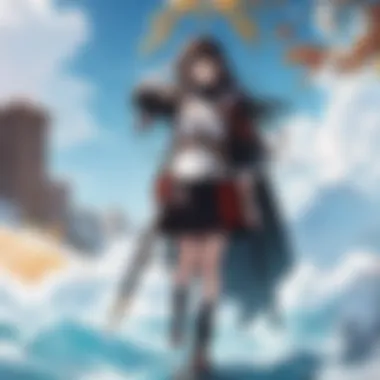
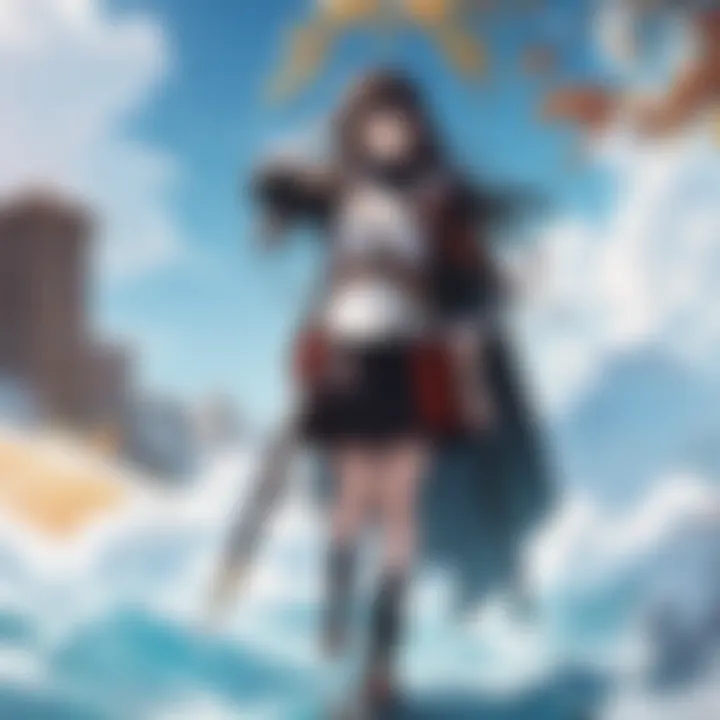
Historical Context and Evolution
The evolution of realist hero anime reflects shifts in audience preferences and societal conditions over the years. Originating in the early 2000s, this niche gained traction as viewers sought deeper narratives. Many demanded stories that reflected their struggles and realities. Early examples include Fullmetal Alchemist, where characters contend with moral and ethical issues surrounding war and sacrifice.
As anime evolved, the genre began to integrate more complex themes. The emergence of technology and a rapidly changing world prompted a re-examination of heroism in this medium. Now, series like Re:Zero - Starting Life in Another World and The Rising of the Shield Hero contribute to this exploration of realism, showcasing characters who navigate personal growth amidst high-stakes environments.
"Realist hero anime pushes the boundaries of traditional storytelling, challenging norms and engaging viewers on multiple levels."
In summary, understanding realist hero anime involves recognizing its defining features, historical development, and societal influences. This context enriches our appreciation for the genre and its impact on the anime landscape.
Key Characteristics of Realist Hero Protagonists
The protagonist in realist hero anime embodies a blend of traits that differentiate them from typical heroes found in more conventional genres. These characteristics help shape the narratives and themes pivotal to this unique genre. Understanding the key traits of these protagonists enables viewers to appreciate the complexities of their journeys, the moral dilemmas they confront, and the realistic challenges they face. This section dissects these essential characteristics in detail:
Moral Ambiguity and Complexity
Moral ambiguity is a defining trait of real hero protagonists. Unlike traditional heroes who often exhibit clear-cut morality, these characters operate in a gray area. They confront choices that reflect the multifaceted nature of ethics. Is achieving a greater good justifiable, even if it requires uncomfortable actions?
This complexity adds depth to the character. For instance, in Re:Zero - Starting Life in Another World, Subaru Natsuki must navigate life and death decisions that illustrate the consequences of his choices. His struggles highlight the intricacies of morality in a harsh world. This complexity resonates with the audience, prompting them to examine their own values and ethical beliefs. It creates a thought-provoking layer that invites deeper engagement.
Strategic Thinking and Leadership Skills
Strategic thinking and leadership are other critical characteristics of realist heroes. These protagonists are often placed in positions where they must devise plans, make calculative choices, and sometimes even manipulate scenarios to their advantage. This practical approach sets them apart from more typical anime characters who might rely on brute force or overwhelming power.
Many series demonstrate this well. For example, in The Rising of the Shield Hero, Naofumi Iwatani is forced to evolve into a strategic leader as he builds alliances and navigates the complexities of a world that initially rejects him. His growth reflects a crucial aspect of realist hero anime where success does not solely depend on strength or skill but rather on intelligence and foresight.
Interpersonal Relationships and Character Development
The interpersonal relationships of realist hero protagonists are often intricate and layered. These characters experience significant growth through interactions with other individuals, helping them evolve personally and professionally. The emotional exchanges and conflicts reveal vulnerabilities, illustrating that even the strongest characters face challenges in relationships.
In Mushoku Tensei: Isekai Ittara Honki Dasu, the protagonist Rudeus Greyrat undergoes profound changes due to his connections with others. Each relationship shapes his decisions and beliefs, showcasing the importance of social dynamics within the narrative. This development is vital for the audience's connection to the characters as it portrays relatable human experiences, enhancing the richness of the story.
Ultimately, the key characteristics of realist hero protagonists culminate in compelling narratives that challenge viewer perceptions. The blend of moral ambiguity, strategic intellect, and character growth all contribute to a deeper understanding of human behaviors and choices, making realist hero anime a noteworthy exploration within the genre.
Thematic Elements in Realist Hero Anime
The thematic elements in realist hero anime are crucial for understanding how this genre distinguishes itself from traditional narratives. They serve not only as plot devices but also as lenses through which the audience engages with complex moral landscapes. These themes explore human nature, governance, and personal decisions under the scrutiny of a realistic framework. Consequently, this genre prompts viewers to reflect on their own societal views and ethical standpoints.
Political Intrigues and Governance
Political elements are frequently woven into the fabric of realist hero anime. Series such as "The Rising of the Shield Hero" present intricate scenarios where protagonists must navigate governance structures and political alliances. These narratives often portray power struggles, corruption, and the weight of leadership. Here, the protagonist's choices impact entire nations, reflecting the stakes involved in real-world politics. The realism in these depictions highlights how the characters are not merely fighting monsters; they must also engage with the governmental systems that influence their world.
This focus on governance allows for rich storytelling. It engages audiences with issues like legitimacy and ethics in leadership. By presenting characters that face moral dilemma in their governance, such as dilemmas between pragmatism and idealism, these stories question the effectiveness of traditional heroism.
Realism vs. Idealism in Storytelling
Realism versus idealism is a theme that encapsulates many narratives in the realist hero genre. While traditional anime often glorifies idealistic heroism, realist heroes operate within the confines of reality, leading to a more nuanced portrayal of challenges. The tension between these two states invites the audience to consider how values and principles can be bent under the pressure of circumstance.
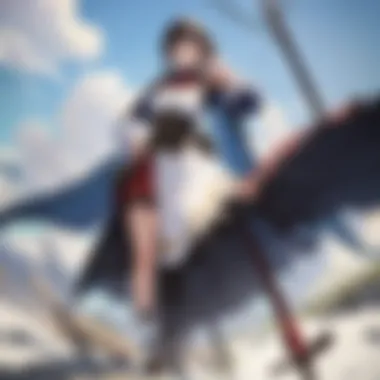
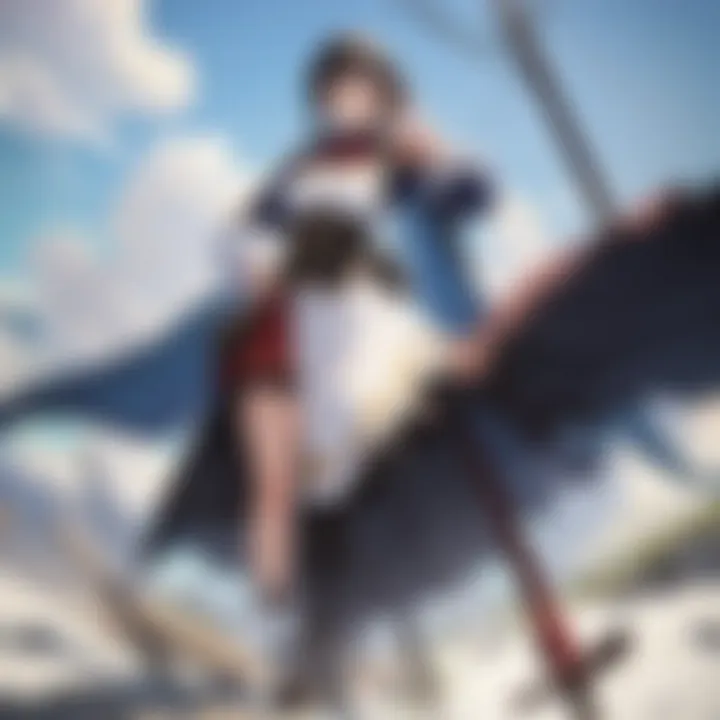
In works like "Re:Zero - Starting Life in Another World," the lead character must grapple with the harshness and unpredictability of life in a new world, often making unheroic choices that lead viewers to reconsider the attributes of a hero. This juxtaposition makes the stories more relatable, as real-life ethical dilemmas are rarely black and white. Viewers begin to question what they would do in similar situations, fostering deeper engagement with the narrative.
Consequences of Choices in a Realistic Setting
The significance of choices and their consequences is a linchpin in realist hero anime. Unlike in more fantastical genres, where consequences might be mitigated by some form of magic or intervention, realistic narratives emphasize the weight of each decision. This approach fosters an understanding of the notion that every action bears ramifications, not just for the hero but for others within the story.
For instance, in "Mushoku Tensei: Isekai Ittara Honki Dasu", the protagonist's journey is intricately tied to the repercussions of his past and present choices. As he confronts his previous mistakes, the series illustrates the growth that comes from acknowledging one's failings. This thematic exploration encourages viewers to contemplate their own choices and the chains of events they set into motion.
"In realist hero anime, the notion of choice serves as a powerful narrative device that complicates what it means to be a hero in a multifaceted world."
Through such examination of themes, realist hero anime not only delivers entertainment but also initiates a discourse on human experience, ethics, and society.
Notable Series in the Realist Hero Genre
Examining notable series within the realist hero genre is crucial to understanding its appeal and themes. Each series serves as a unique lens through which the audience can explore various narratives and character arcs. These stories challenge conventional anime tropes by presenting heroes who tackle complex moral dilemmas, engage in strategic battles, and showcase personal growth in a realistic context. The effectiveness of these series lies in their ability to bridge the gap between fantastical elements and realistic storytelling, making them compelling to both casual viewers and dedicated enthusiasts.
Case Study: 'The Rising of the Shield Hero'
'The Rising of the Shield Hero' is a standout example in the realist hero genre. The series focuses on Naofumi Iwatani, who is summoned to a parallel world as one of four heroes. However, he faces betrayal, which sets the tone for his transformative journey. The implications of trust and the harsh realities of power dynamics are examined in depth. Naofumi’s struggles highlight feelings of isolation and rage, offering a stark contrast to typical hero narratives. This series reflects the importance of resilience in the face of adversity, and it resonates deeply with audiences who appreciate character-driven stories. By portraying failure and the subsequent rise, it elevates the narrative beyond mere escapism.
'Re:Zero - Starting Life in Another World': A Realist Perspective
'Re:Zero - Starting Life in Another World' takes a different approach to the realist hero narrative. The protagonist, Subaru Natsuki, is thrust into a fantasy world where he discovers the ability to return from death. This unique mechanic underscores the theme of consequences in decision-making. Each death serves as a harsh reminder of Subaru's vulnerabilities and personal growth. His journey showcases the psychological impact of repeated failures and the cost of heroism. The intensity of Subaru's experiences provides a meticulous exploration of despair, responsibility, and genuine human emotions, setting it apart from traditional fantasy series.
Exploring 'Mushoku Tensei: Isekai Ittara Honki Dasu'
'Mushoku Tensei: Isekai Ittara Honki Dasu' offers another layer to the realist hero discussions through its protagonist, Rudeus Greyrat. Reincarnated in a magical world, Rudeus begins to utilize his knowledge from his previous life to navigate new challenges. The series addresses heavy themes, such as redemption and the impact of past actions. Rudeus displays remarkable growth, but the narrative does not shy away from his flaws. Through rich character development, the series critiques societal norms while presenting fantasy tropes in a more grounded setting. The balancing act between fantasy elements and relatable struggles enhances the overall storytelling.
In the realist hero genre, characters embody growth through challenges, showcasing a departure from traditional hero archetypes.
The analysis of these series demonstrates the genre's rich narrative tapestry. Each work contributes unique insights into the hero's journey, allowing deeper reflections on human nature and societal constructs. As the genre continues to evolve, its exploration of realism within fantastical settings promises to remain a significant aspect of anime storytelling.
Societal and Cultural Reflections
The realist hero anime genre serves as a mirror to the complexities of contemporary life, presenting narratives that resonate with modern audiences. It provides an opportunity to explore not just individual stories, but also the broader societal themes reflected in these tales. The significance of understanding societal and cultural reflections within this genre lies in its ability to illuminate the challenges of contemporary existence through the lens of fictional narratives. Here, we will dive into how modern society influences these stories and how audiences react and adapt to the themes presented.
Influence of Modern Society on Narratives
Realist hero anime frequently reflects current societal issues. Themes such as political strife, economic challenges, and interpersonal conflicts find their way into the fabric of these narratives. The characters often embody the struggles of everyday individuals, navigating dilemmas that echo real-world problems. For example, anime like The Rising of the Shield Hero illustrates themes of betrayal and redemption, offering commentary on trust and societal dynamics.
Several key elements influence these narratives:
- Social Norms: The portrayal of heroes often challenges traditional societal norms and expectations. Characters may act against the grain, reflecting the growing acceptance of diverse perspectives.
- Technological Impact: Modern technology often plays a role, altering the landscape in which these stories unfold. The accessibility of information influences characters’ decisions and societal interactions.
- Globalization: As cultures mix, themes from various cultures intertwine in narratives, broadening the scope of realism in these anime.
This deep connection between narrative and societal context enriches the genre, allowing it to remain relevant and engaging for viewers.
Audience Reception and Cultural Impact
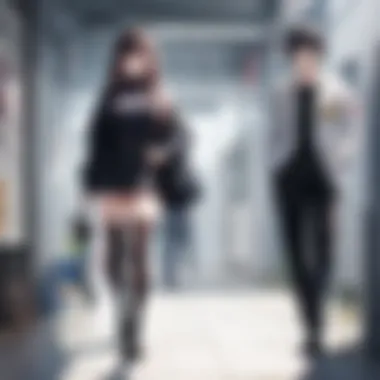
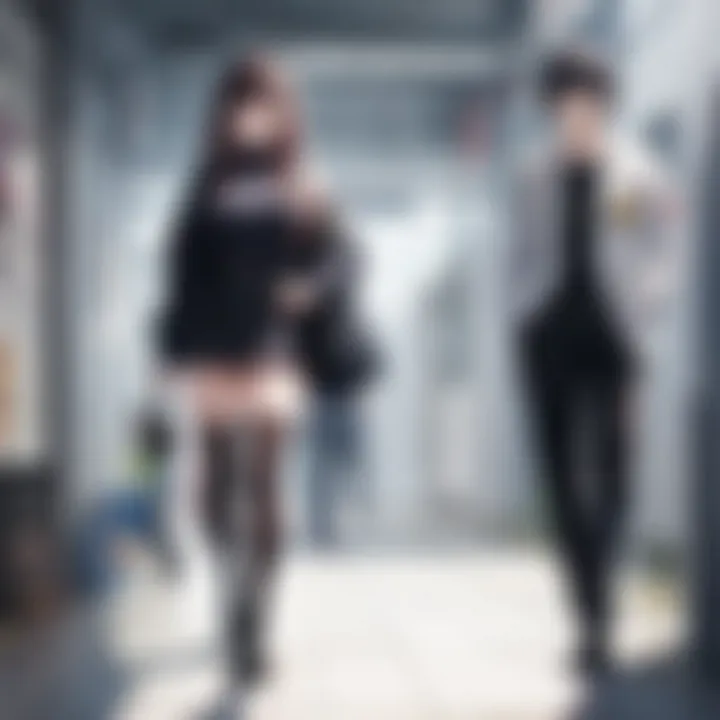
The reception of realist hero anime is significant to understanding its cultural impact. Audiences typically engage with these narratives on multiple levels, finding layers of meaning that resonate with personal experiences. The relatability of the characters enhances viewer attachment, leading to positive reception and widespread discussions within communities and forums such as reddit.com.
Notable points regarding audience reception include:
- Relatability: Viewers appreciate characters that showcase moral ambiguity and complex decision-making similar to real life. This connection fosters a sense of empathy and understanding.
- Critical Discussions: The thematic elements inspire debates about morality, justice, and governance. Audiences often engage in thoughtful discussions surrounding the implications of characters' choices.
- Cultural Dialogue: These narratives often provoke conversations about societal values and norms, contributing to a wider cultural dialogue about what constitutes a hero in modern times.
Overall, the genre not only entertains but also promotes critical thinking and reflection on societal issues, making it a vital part of modern anime culture. This mutual influence between story and society highlights the importance of realist hero anime as an evolving narrative form.
Comparative Analysis with Other Genres
The genre of realist hero anime stands out in the broader landscape of anime. Engaging in a comparative analysis with other genres highlights its unique features and storytelling techniques. Notably, understanding where realist hero anime fits within the larger anime ecosystem enhances appreciation for its narratives.
Realist hero anime differentiates itself by focusing on the moral complexities of its characters and the realistic consequences of their decisions. This presents a stark contrast to traditional genres like shonen and shojo, which often prioritize action-driven plots or romantic idealism. By exploring these contrasts, one can better grasp the expectations and narratives that define this genre.
Contrasts with Traditional Shonen and Shojo
Traditional shonen and shojo anime often employ archetypal characters and straightforward narratives.
- Shonen typically revolves around themes of friendship, perseverance, and adventure. Protagonists might have exaggerated abilities, often leading to fantastical confrontations.
- Shojo, on the other hand, centers around romantic relationships, personal growth, and emotional expression, frequently employing idealized scenarios.
In contrast, realist hero anime brings a more nuanced perspective to storytelling. The protagonists often encounter morally ambiguous situations that require strategic thinking and careful decision-making. For instance, characters like Kiyotaka Ayanokoji from "Classroom of the Elite" exemplify this approach by manipulating their surroundings to achieve their goals rather than relying solely on physical strength or romance. These subtle differences in portrayal lead to more intricate story arcs that challenge viewers to reflect on ethical dilemmas and human behavior.
Mixing Elements of Fantasy and Realism
Realist hero anime skillfully blends elements from both fantasy and realism. Rather than dismissing the fantastic aspects of the genre, it integrates them into relatable social and political themes.
- Fantasy elements often serve as a backdrop, where characters navigate unusual worlds filled with magic or advanced technology. However, these elements are not merely for entertainment; they are used to amplify real-world issues such as political power dynamics, social injustice, and personal rivalry.
- The realism comes in the form of character motives and the consequences of their actions, providing audiences with a grounding experience. This dual approach allows for deeper engagement with themes most relevant to contemporary society.
For example, series like "Re:Zero - Starting Life in Another World" present fantastical challenges, yet the emotional turmoil and moral questioning faced by the protagonist resonate strongly with real-life experiences of grief and consequence. This blending of genres not only broadens the appeal of the narratives but also invites audiences to draw connections between the fantastic and the familiar.
"The blending of fantasy and realism in realist hero anime invites viewers to engage with profound themes while enjoying the spectacle of unique worlds and characters."
Future Directions of Realist Hero Anime
The exploration of future directions in realist hero anime is crucial. This section illuminates the changes and evolutions anticipated within the genre. As the landscape of storytelling shifts, realist hero anime faces unique challenges and opportunities that can redefine its narratives. Key areas include trends in storytelling and the potential for genre expansion.
Trends in Storytelling
Current storytelling trends reflect a growing complexity in character development and narrative structure. Audiences increasingly demand more nuanced tales and multidimensional protagonists. Realist hero anime is responding affirmatively to these demands.
- Focus on Character Backstories: Protagonists’ past experiences are examined in detail, illustrating how they shape their present decisions.
- Emphasis on Realistic Events: The narratives often incorporate real-world issues that resonate with viewers. This can range from political intrigue to economic crisis, grounding the story in relatable contexts.
- Interactivity with the Audience: New platforms allow fan engagement, shaping how stories are told and perceived. Viewers often influence plots or character arcs, leading creators to be more responsive.
These trends showcase a move towards more serious storytelling, attracting those looking for depth in their anime experiences. Such evolution requires careful balancing of entertainment and realism, ensuring that genuine emotional engagement remains key.
Potential for Genre Expansion
Realist hero anime's potential for expansion signals new horizons for creators. This genre can blend with other narrative elements to attract diverse audiences. Several possibilities emerge:
- Cross-Genre Collaborations: By blending with science fiction, horror, or slice-of-life genres, realist hero anime can explore uncharted territories.
- Global Influence: International stories and perspectives can enrich narratives, providing a broader scope that transcends cultural boundaries.
- Technological Integration: Using virtual reality or augmented reality can create immersive experiences that bring stories to life in unprecedented ways.
The genre’s flexibility positions it well for adapting to audience preferences and cultural shifts. Engaging with broader themes while maintaining the core facets of realism can enhance its appeal.
"In navigating future trends and potentials, the realist hero genre may redefine its own boundaries, carving its place as an essential narrative form in anime culture."
As we look ahead, the ways in which these trends and expansions unfold will be vital to understand. They not only shape the current landscape but also set the stage for the next generation of narratives within the realist hero anime domain.















